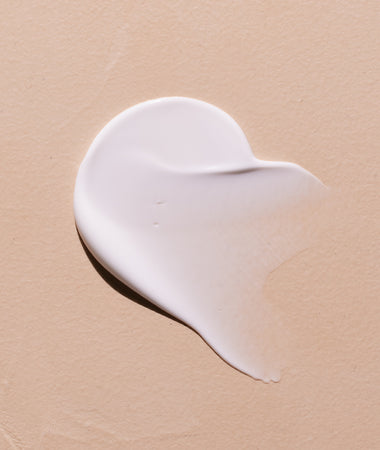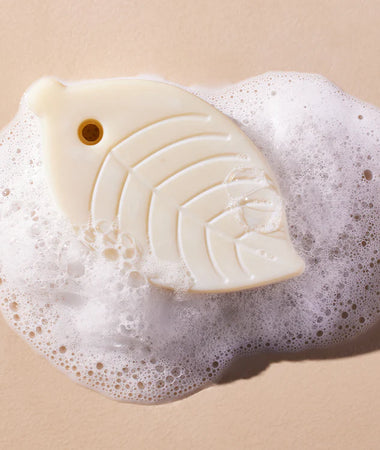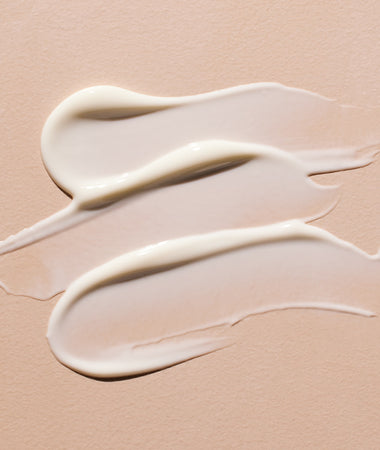
How Often Should You Bathe A Newborn: A Guide For Parents
Caring for your brand new baby can be both exciting and confusing, especially when it comes to keeping their tiny body clean. How often should you bathe a newborn? And how can you keep them clean in-between baths? These are good questions.
In this article, we’ll start by discussing how often to bathe your little one. Then, we’ll go over a few ways to prevent dry baby skin when it’s time to put them in the tub.
Let’s start with the big question: How often should you bathe a newborn?
Table Of Contents
- How Often Should You Bathe A Newborn?
- Preventing Dry Skin
- Giving Your Newborn A Sponge Bath
- Bathing Your Newborn
- Answers To How Often Should You Bathe A Newborn
How Often Should You Bathe A Newborn?

Between spit-up, drool, and blowouts, it might seem like your little one constantly needs cleaning up. But when you stop to think about it, newborns don’t sweat much or end up grimy from playing outside. Other than their bodily functions, they don’t really get dirty.
So, how often should you bathe a newborn to keep them clean? As long as you’re cleaning their spit-up, drool, and diaper area on a daily basis, we recommend a bath two to three times a week.
Whether you’re still giving sponge baths or have moved on to sink (or baby tub) baths, this frequency is enough to keep your baby clean.
When you bathe your baby too often, they’re more likely to develop dry skin. This is because baby skin is thinner than adult skin, leaving it prone to dryness and irritation.
That’s why we recommend limited bathing (two to three times per week) and little wipe downs for your baby’s delicate skin.
Now that we know the frequency of bathing, let’s discuss how you can prevent dry skin and make bathtime work for — not against — your baby’s skin!
Preventing Dry Skin

Since bathing your baby has the potential to dry out their skin, it’s important to keep the following factors in mind when they splish-splash in the bath.
Keep Baths Short And Sweet
As your baby grows, bath time might turn into fun playtime that just can’t be cut short! However, for now, keep baths short and sweet. The longer your baby is in the bath, the more their skin can become dry.
All you need is five or 10 minutes to get them clean!
Check The Water Temperature
Another key to a safe bath that won’t dry your baby’s skin: Keep the bathwater warm, not hot. Hot water can strip the moisture from their skin. And if the water is too hot, it’s simply not safe.
If you have a bath thermometer, check that the water temperature is around 97°F.
Use Gentle Products

Now, turn your attention to the bathtime products you use. Products that contain harsh ingredients can irritate and dry your baby’s skin. And that’s not to mention that some ingredients can be just plain bad for their health.
When it comes to questionable ingredients to avoid, stay away from synthetic fragrances, phenoxyethanol, parabens, and sulfates. Instead, choose gentle products that are designed specifically for baby skin and made with natural ingredients.
What do we mean by “natural ingredients?” Ingredients that come straight from nature. Here are a few to look for:
- Aloe vera
- Avocado
- Avocado oil
- Avocado perseose
- Beeswax
- Jojoba oil
- Olive oil
- Shea butter
- Calendula
Read more about these ingredients here.
One product filled with good-for-you ingredients is our hypoallergenic Foam Shampoo For Newborns — formulated with 99% naturally derived ingredients and free of fragrance, parabens, phthalates, and phenoxyethanol.
This shampoo treats your baby’s skin to avocado polyphenols, a patented ingredient of natural origin that helps protect and hydrate your baby’s delicate scalp, and sunflower seed oil to replenish and restore the skin barrier and prevent cradle cap from recurring.
It’s made to cleanse your baby's hair and scalp while minimizing cradle cap flakes. Plus, it’s biodegradable. Safe for your newborn and the environment!
For organic bathtime options, check out our certified organic line here.
Apply Baby Lotion

Ward off the drying effects of bath time by applying baby lotion after drying your baby. Keep in mind that the same rule applies here: Use a gentle lotion that’s made with baby skin in mind.
Our best-selling Hydra Bebe Lotion contains jojoba oil, sunflower oil, and our signature avocado perseose and is specially formulated to minimize the risk of allergic reactions. Use it along with Hydra Bebe Facial Cream for complete, all-over moisturization.
Or, opt for a lotion that’s perfect for the whole family, such as Certified Organic Hydrating Cream with Olive Oil and Aloe.
Made with 99.6% naturally derived ingredients including organic aloe vera, organic sunflower oil, and organic olive oil from family-owned groves in the South of France, this moisturizer leaves both baby and adult skin soft, supple, and hydrated.
Rest assured that this EWG Verified™ product is environmentally conscious inside and out. The packaging is made from sustainably sourced sugar cane, and we’ve gotten rid of secondary cartons.
Stay Clean Between Baths

How often should you bathe a newborn? Two or three times a week. How often should you clean up spit-up, drool, and blowouts? Every time they happen!
As we mentioned above, your baby only needs a full bath two or three times a week as long as you keep them clean in between. Simply spot-clean your little one’s skin as needed every day and wipe their bottom well during each diaper change.
Micellar water is the safe, gentle, no-rinse solution for cleanup between baths. With a cotton ball and our Certified Organic Micellar Water with Olive Oil and Aloe, gently clean your baby’s face, hands, and diaper area. Since there’s no need to rinse it off, cleanup is quick and easy!
This micellar water is carefully crafted with only eight ingredients, 99.7% of which are naturally derived. And moms, keep in mind that it’s gentle and safe for babies’ sensitive skin but also effective enough to remove makeup on adults! Win-win.
As for diaper changes, thoroughly clean and soothe the area with Cleansing Wipes designed for normal baby skin or Certified Organic Water Wipes with Cotton and Aloe. Then, use our Diaper Cream with Olive Oil and Aloe or Diaper Rash Cream 1 2 3 to moisturize, soothe, and protect your baby’s bottom.
If your baby has eczema-prone skin, opt for Diaper Rash Cream 1 2 3, a 3-in-1 product that is approved by the National Eczema Association and relieves your baby's delicate skin at every diaper change.
Run A Humidifier
Last but not least, use a humidifier to pump moisture into dry air. If the air is humid, your baby’s skin is less likely to dry out. It’s as simple as that.

With these tips for preventing dry skin at bathtime, you can take care of your baby’s skin no matter how often they need a scrub-a-dub!
Before we wrap up, we’ll leave you with some information on how to give your newborn a sponge bath as well as what to do when you switch to baby tub baths.
Giving Your Newborn A Sponge Bath
If you’ve just given birth to your precious little one, remember that there’s no need to give them a sponge bath right away. It’s actually better to wait at least 24 hours for the first bath. Waiting helps maintain the vernix (which has antibacterial properties) on a newborn’s skin.
Once it’s time for your baby’s first bath, you won’t put them straight in the baby bathtub. You’ll start with sponge baths. It’s pretty simple, and you can find our step-by-step guide here if you have any questions.
Bathing Your Newborn
You’ll give a few sponge baths, but it won’t be long before your little one graduates to their baby tub. When your baby’s umbilical cord falls off (around one or two weeks), you can make the switch.
For 10 steps to bathing your baby, from filling the tub to washing your little one, click here. And if you have a baby with eczema, you’ll also want to read about how to go about bathtime to avoid flare-ups.
Answers To How Often Should You Bathe A Newborn

Let’s review to wrap things up. How often should you bathe a newborn? Two or three times a week is enough. More than that and your baby’s skin will be more susceptible to dryness.
Use Certified Organic Micellar Water and Cleansing Wipes to keep your baby’s skin squeaky clean between baths, and you’re good to go. And when it’s bath time, protect their skin with gentle, hydrating products such as Foam Shampoo For Newborns and Hydra Bebe Lotion.
Spot-cleaning throughout the day and a bath when necessary are all you need to take great care of your baby’s precious, kissable skin!
- reg.
- $18.00
- Sale price
-
$18.00
- reg.
-
reg. $18.00
- Unit price
- /per
- reg.
- $22.00
- Sale price
-
$22.00
- reg.
-
reg.
- Unit price
- /per
Suggested Articles

The Characteristics Of Your Baby's Sleep

The Secret Of Baby Skin

Protecting Your Baby's Skin In The Winter
Get tips, news
and exclusive offers






